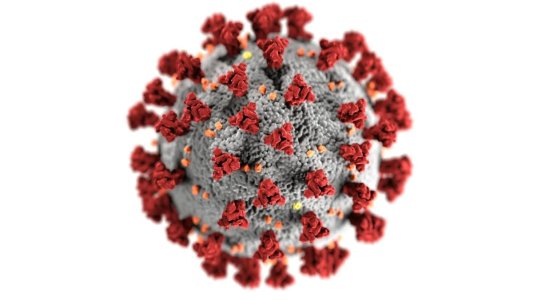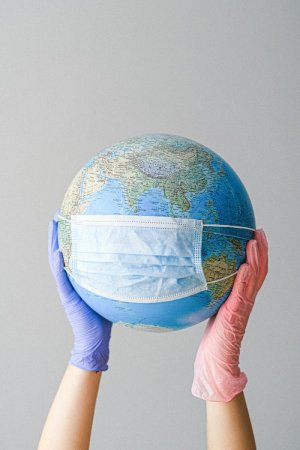The next pandemic could be around the corner: Here’s what the WHO director wants you to know
By
Veronica E.
- Replies 4
In today’s world, where terms like “quarantine,” “lockdown,” and “flatten the curve” have become part of our everyday vocabulary, it’s hard not to feel a sense of déjà vu when experts begin discussing the next major health threat.
While many are still recovering from the emotional and physical impact of the COVID-19 pandemic, global health leaders are sounding a renewed alarm—reminding us that being prepared isn’t just a good idea; it’s absolutely essential.
Dr. Tedros Adhanom Ghebreyesus, the Director-General of the World Health Organization (WHO), has recently made a serious call to action.
He stressed that another pandemic isn’t just a possibility—it’s an inevitability.
His message? We cannot afford to let our guard down.

Understanding the gravity of the situation
The lingering effects of COVID-19 are still deeply felt.
The pandemic disrupted life in ways no one expected—affecting not only health, but also finances, family dynamics, and daily routines.
For many of us, those years are still fresh in our memories.
Concerns arose just last month with the discovery of a new coronavirus in China.
Though we hope to never experience anything like it again, the reality is that outbreaks such as Ebola, Marburg virus, and avian influenza continue to remind us of how unpredictable the world of public health can be.
This growing concern is pushing the WHO and its member states to take action now, not later.
A key step in this effort is the WHO Pandemic Agreement—a proposed international framework designed to strengthen global preparedness and cooperation when the next health crisis emerges.
Also read: New virus discovery in uncharted region causes future pandemic concerns–Protect yourself now!
The urgency of readiness
At the recent Thirteenth Meeting of the Intergovernmental Negotiating Body on the WHO Pandemic Agreement, Dr. Tedros made it clear: the next global health emergency is not a question of "if," but "when."
"It could emerge in 20 years, or it could happen tomorrow. But it will happen, and regardless of when, we must be prepared. This is not a theoretical risk; it is an epidemiological certainty."
Tedros urged member states to "bring the WHO Pandemic Agreement to fruition."

Also read: Is the HMPV virus taking over your state? Here’s how to spot it
The WHO Pandemic Agreement: A beacon of hope
Central to the WHO’s strategy is a vision to unite the global community under one cooperative framework.
Dr. Tedros reassured nations that the agreement would "in no way undermine the sovereignty of any Member State" but instead "reinforce national sovereignty and international cooperation."
He also reminded attendees that pandemics can be just as destructive as wars.
He said: "For instance, the first World War claimed an estimated 15 to 22 million lives, while the 1918 influenza pandemic resulted in approximately 50 million deaths—more than double."
The WHO’s message is clear: safeguarding public health must be prioritized on a global scale.
Also read: Trump withdraws US from the WHO: Here's what you need to know
The United States’ role and response
The relationship between the US and the WHO has been tumultuous in recent years.
In 2020, Donald Trump criticized the organization for mishandling the pandemic and halted US funding to the WHO on April 14 during his first term.
Later, President Joe Biden restored ties with the organization before Trump signed an executive order to withdraw from it in January.
A call for unity and action
Tedros emphasized, "The world needs a strong signal that in these divided and divisive times, countries can still come together to collaborate and find common ground. The Pandemic Agreement can be that signal, and you can be the ones to give it."
Trump’s executive order had criticized the WHO for its "mishandling of the COVID-19 pandemic" and claimed that the organization failed to enact "urgently needed reforms" and lacked independence from the "inappropriate political influence of WHO member states."
As the world continues to recover from the effects of the COVID-19 pandemic, the need for global preparedness has never been more urgent.
Let's stay informed, stay proactive, and support the efforts to safeguard our global health.
Read next: You’ve heard of it—but you may not realize how deadly it still is

At The GrayVine, we understand the importance of staying informed—especially when it comes to health. Have you or a loved one been affected by COVID-19? What are your thoughts on the WHO’s efforts to prepare for the future? Do the steps being taken reassure you, or do you have concerns? Let us know in the comments below!
While many are still recovering from the emotional and physical impact of the COVID-19 pandemic, global health leaders are sounding a renewed alarm—reminding us that being prepared isn’t just a good idea; it’s absolutely essential.
Dr. Tedros Adhanom Ghebreyesus, the Director-General of the World Health Organization (WHO), has recently made a serious call to action.
He stressed that another pandemic isn’t just a possibility—it’s an inevitability.
His message? We cannot afford to let our guard down.

WHO warns about the certainty of future pandemics and the need for global preparedness. Image Source: Pexels / CDC.
Understanding the gravity of the situation
The lingering effects of COVID-19 are still deeply felt.
The pandemic disrupted life in ways no one expected—affecting not only health, but also finances, family dynamics, and daily routines.
For many of us, those years are still fresh in our memories.
Concerns arose just last month with the discovery of a new coronavirus in China.
Though we hope to never experience anything like it again, the reality is that outbreaks such as Ebola, Marburg virus, and avian influenza continue to remind us of how unpredictable the world of public health can be.
This growing concern is pushing the WHO and its member states to take action now, not later.
A key step in this effort is the WHO Pandemic Agreement—a proposed international framework designed to strengthen global preparedness and cooperation when the next health crisis emerges.
Also read: New virus discovery in uncharted region causes future pandemic concerns–Protect yourself now!
The urgency of readiness
At the recent Thirteenth Meeting of the Intergovernmental Negotiating Body on the WHO Pandemic Agreement, Dr. Tedros made it clear: the next global health emergency is not a question of "if," but "when."
"It could emerge in 20 years, or it could happen tomorrow. But it will happen, and regardless of when, we must be prepared. This is not a theoretical risk; it is an epidemiological certainty."
Tedros urged member states to "bring the WHO Pandemic Agreement to fruition."

WHO emphasizes the certainty of future pandemics and the need for global preparedness. Image Source: Pexels / Anna Shvets.
Also read: Is the HMPV virus taking over your state? Here’s how to spot it
The WHO Pandemic Agreement: A beacon of hope
Central to the WHO’s strategy is a vision to unite the global community under one cooperative framework.
Dr. Tedros reassured nations that the agreement would "in no way undermine the sovereignty of any Member State" but instead "reinforce national sovereignty and international cooperation."
He also reminded attendees that pandemics can be just as destructive as wars.
He said: "For instance, the first World War claimed an estimated 15 to 22 million lives, while the 1918 influenza pandemic resulted in approximately 50 million deaths—more than double."
The WHO’s message is clear: safeguarding public health must be prioritized on a global scale.
Also read: Trump withdraws US from the WHO: Here's what you need to know
The United States’ role and response
The relationship between the US and the WHO has been tumultuous in recent years.
In 2020, Donald Trump criticized the organization for mishandling the pandemic and halted US funding to the WHO on April 14 during his first term.
Later, President Joe Biden restored ties with the organization before Trump signed an executive order to withdraw from it in January.
A call for unity and action
Tedros emphasized, "The world needs a strong signal that in these divided and divisive times, countries can still come together to collaborate and find common ground. The Pandemic Agreement can be that signal, and you can be the ones to give it."
Trump’s executive order had criticized the WHO for its "mishandling of the COVID-19 pandemic" and claimed that the organization failed to enact "urgently needed reforms" and lacked independence from the "inappropriate political influence of WHO member states."
As the world continues to recover from the effects of the COVID-19 pandemic, the need for global preparedness has never been more urgent.
Let's stay informed, stay proactive, and support the efforts to safeguard our global health.
Read next: You’ve heard of it—but you may not realize how deadly it still is
Key Takeaways
- WHO Director-General Tedros Adhanom Ghebreyesus has warned that the next pandemic is a matter of "when", not "if".
- Global readiness and response to pandemics is at the forefront of discussion amongst WHO member states, particularly surrounding the new WHO Pandemic Agreement.
- Tedros highlighted the potential for a pandemic to cause greater loss of life and socio-economic disruption than war, as demonstrated by the 1918 influenza pandemic in comparison to World War I.
- The Thirteenth Meeting of the Intergovernmental Negotiating Body on the WHO Pandemic Agreement aims to pave the way for stronger global collaboration in the face of future pandemics.
At The GrayVine, we understand the importance of staying informed—especially when it comes to health. Have you or a loved one been affected by COVID-19? What are your thoughts on the WHO’s efforts to prepare for the future? Do the steps being taken reassure you, or do you have concerns? Let us know in the comments below!






